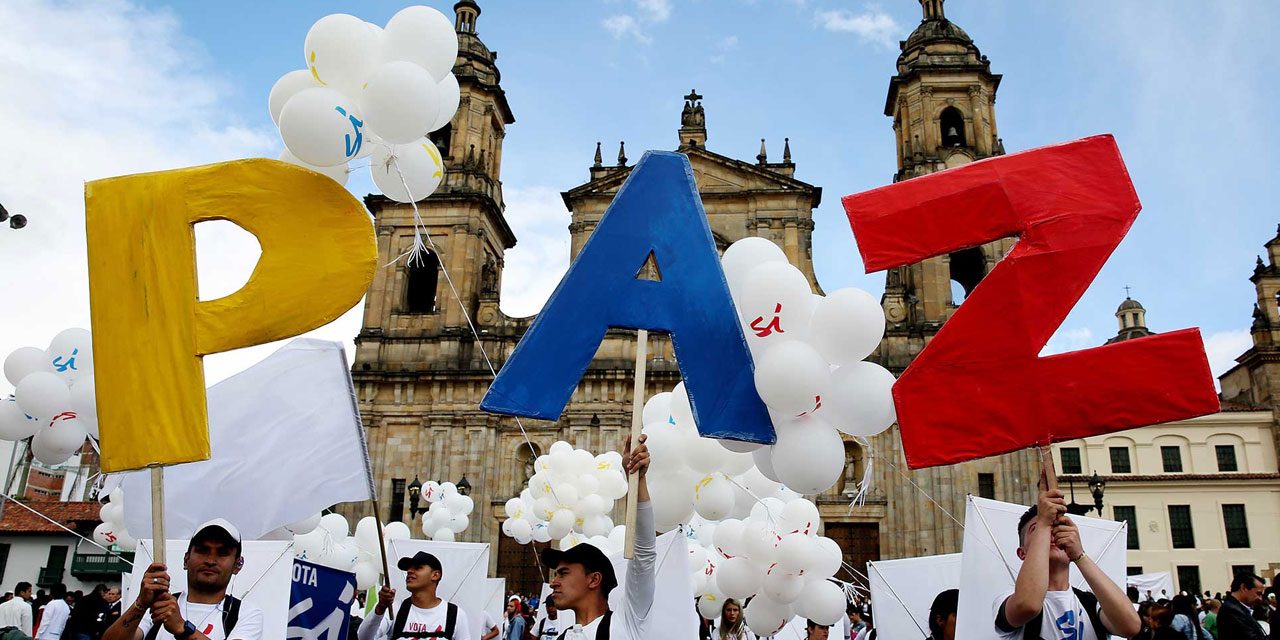While extremists like FARC dissident “Ivan Marquez” and former President Alvaro Uribe are trying to polarize Colombia, moderate forces are keeping the country together.
These moderate forces in Colombian society have been promoting and defending peace in Colombia since before talks with the FARC began in 2012, despite resistance from the far-left and the far-right.
All have consistently criticized the government of President Ivan Duque over his failure to implement the peace deal with the FARC and have resolutely rejected the FARC dissidents’ to rearm.
Colombia is not polarized, its politicians are and media are inflating this
Colombia’s peace movement
Defendamos la Paz is a collective of political leaders from almost all parties, opinion and religious leaders, victim representatives, and demobilized leaders of both the FARC and their former arch enemies, the AUC.
This collective was formed to defend Colombia’s peace process from attacks from the far-left and the far-right, and government and criminal attempts to sabotage the peace process.
Defendamos la Paz has consistently criticized President Ivan Duque’s failures to implement or frustrate the peace process and has been growing stronger over time.
Congress

The majority of congressmen belong either to the leftist opposition or the center-right “independent” voting block.
While disagreeing on many issues, when it comes to the peace process these two forces are completely aligned and have prevented Duque or his far-right Democratic Center party from doing the damage they have tried to do to the peace process.
This block has also received support from the Democratic Party in the US’ Congress.
The high courts

The Constitutional Court has revoked many riders in legislation that sought to disrupt the peace process and has provided judicial security to demobilized FARC members to prevent them from rearming.
The Supreme Court has been going after extremists like Democratic Center party leader Alvaro Uribe, criminal lawmakers aligned with illegal armed groups and FARC dissidents.
The war crimes tribunal has played a key role in countering sabotage attempts by the US embassy, rogue DEA agents, dodgy New York prosecutor Geoffrey Berman and Colombia’s notoriously corrupt Prosecutor General’s Office. The court has consistently protected victims’ rights and has revoked judicial benefits of demobilized FARC guerrillas or members of the military who were proven to be violating the peace deal or committing crimes.
The international community
The UN’s mission in Colombia and its representative for human rights have been monitoring compliance to the 2016 peace deal by both the FARC and the government, and have exposed failures to comply in events they occurred.
The UN’s drug agency has consistently promoted counternarcotics policies that effectively seek to reduce cocaine exports, despite resistance by the administrations of Duque and his American counterpart Donald Trump.
The European Union has been using its financial strength to endorse peace building projects while its diplomats have been lobbying and endorsing local leaders who work to support the peace process.
The think tanks
These think tanks, like WOLA in the United States, and Indepaz, Paz y Reconciliacion and Ideas para la Paz in Colombia, have been crucial in providing the public with information from Colombia’s society rather than government propaganda.
The independent press
The dominance of these media, however, are increasingly being challenged by independent media that do abide by journalistic principles and do not rely on government propaganda funds.
These media have been able to reveal rampant corruption in government and counter the traditional black and white reporting of the traditional media. Most importantly, they have allowed Colombians access to information that more accurately portrays the different realities outside of the capital Bogota, allowing people to form nuanced rather than polarized opinions.



